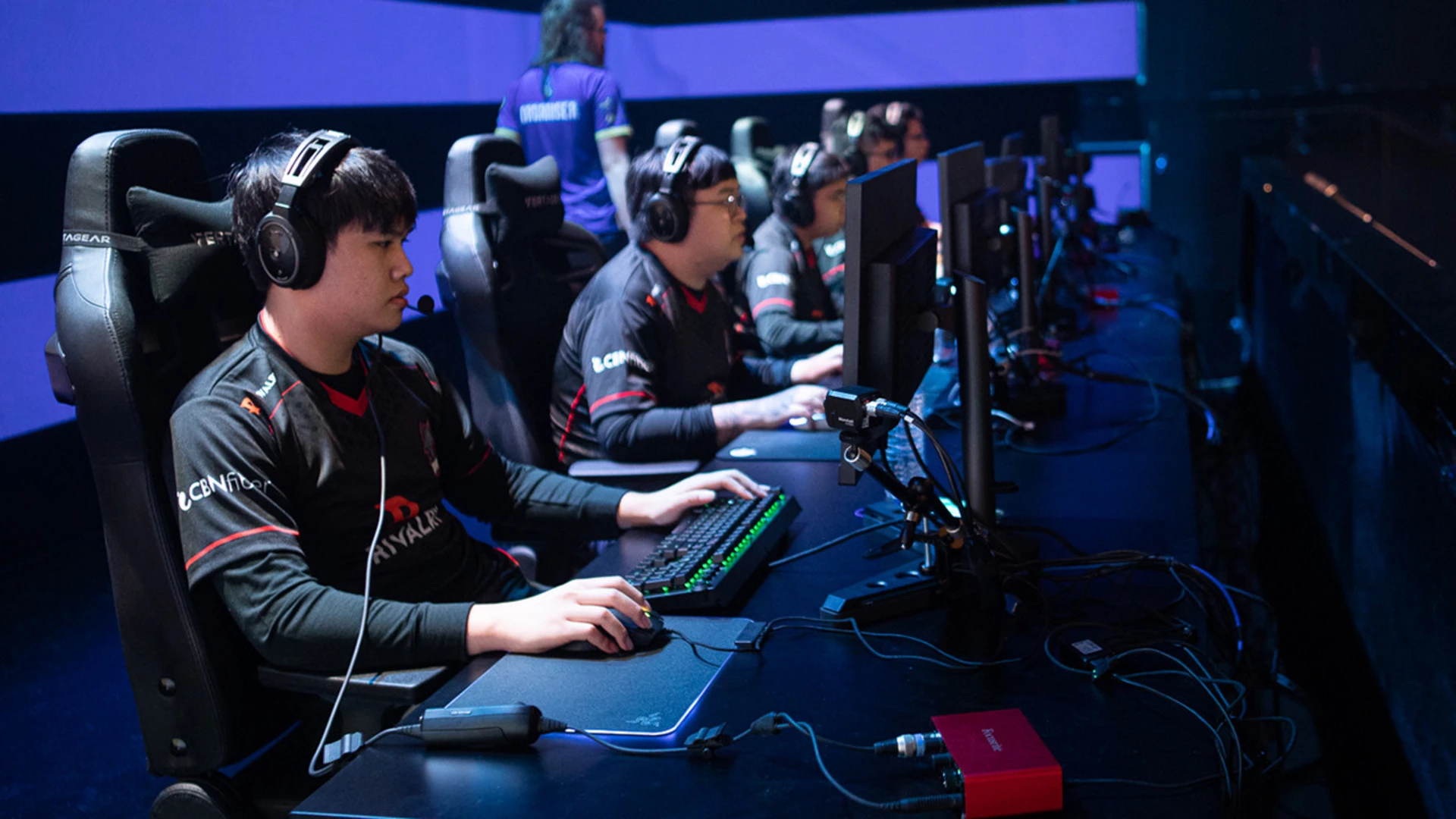The Explosive Growth of eSports
Picture this: a stadium packed with thousands of screaming fans, their eyes glued to massive screens as players battle it out—not on a field, but in a virtual world. This is the electrifying reality of eSports events, a phenomenon that’s taken the globe by storm. From humble beginnings in small LAN parties to multimillion-dollar tournaments, eSports has redefined competitive entertainment, blending gaming prowess with mainstream appeal. Its meteoric rise has caught the attention of brands, making sponsorship a cornerstone of its ecosystem.
What Are eSports Events?
eSports events are competitive gaming tournaments where professional players or teams face off in popular video games like League of Legends, Dota 2, or Counter-Strike. These events range from local showdowns to global spectacles like the League of Legends World Championship, drawing millions of viewers online and in-person. They’re not just about gaming; they’re cultural moments that unite fans, players, and sponsors in a shared digital passion.
Why Are eSports Events So Popular?
The allure of eSports lies in its accessibility and inclusivity—anyone with a computer or console can aspire to compete. Fans are drawn to the high-stakes drama, strategic depth, and the personalities of star players like Faker or s1mple. Add in the global reach of streaming platforms like Twitch and YouTube, and it’s no surprise that eSports events rival traditional sports in viewership. For brands, this is a goldmine to tap into a young, tech-savvy audience.
The Scale of Major eSports Events
Major eSports tournaments are massive undertakings, often hosted in iconic venues like Madison Square Garden or Seoul’s Olympic Stadium. For instance, the 2024 League of Legends World Championship reportedly drew over 100 million unique viewers, surpassing many traditional sports finals. Prize pools can exceed $40 million, funded largely by sponsorships and media rights, showcasing the industry’s financial clout.
The Role of Sponsorship in eSports
Sponsorship is the lifeblood of eSports, fueling everything from player salaries to event production. Brands like Intel, Coca-Cola, and Mercedes-Benz have jumped into the arena, recognizing the unique opportunity to connect with a digitally native audience. Unlike traditional sports, eSports sponsorships thrive on authenticity and integration, blending seamlessly into the gaming culture rather than feeling like an ad slapped on a jersey.
Types of eSports Sponsorship
Sponsorships in eSports come in various flavors, each offering unique benefits for brands and organizers. Understanding these types helps explain why companies are pouring billions into the industry. Here are the main categories:
- Headline Sponsorships: Brands like Mastercard sponsor major tournaments, gaining prime visibility through logos on streams, stages, and merchandise.
- Team Sponsorships: Companies support specific teams, like Mercedes-Benz backing T1 in League of Legends, providing gear or funding.
- In-Game Sponsorships: Brands integrate into the game itself, such as branded skins or virtual arenas, seen in games like Fortnite.
- Streaming Partnerships: Sponsors align with platforms like Twitch or individual streamers, leveraging their massive followings.
- Event Activations: Brands set up interactive booths or experiences at events, engaging fans directly.
Why Brands Love eSports Sponsorship
Why are brands flocking to eSports? It’s simple: the audience. eSports fans are predominantly young (18–34), tech-savvy, and resistant to traditional advertising. Sponsoring an event or team allows brands to build authentic connections, not just transactions. Research shows that a strong sponsor-event fit can boost brand awareness by up to 30% and purchase intent by 20% among fans.
The Power of Authenticity
Authenticity is king in eSports sponsorship. Fans can smell inauthenticity a mile away—if a luxury fashion brand sponsors an event with no gaming connection, it risks skepticism. Take Intel’s long-standing partnership with ESL: their tech-focused branding aligns perfectly with the gaming hardware fans care about, creating a seamless fit that enhances trust and engagement.
Endemic vs. Non-Endemic Sponsors
Sponsorships fall into two camps: endemic (gaming-related, like ZOWIE monitors) and non-endemic (outside gaming, like Coca-Cola). Endemic sponsors often resonate more naturally, but non-endemic brands can succeed with creative integration. For example, Audi’s sponsorship of Astralis included branded content that felt native to the eSports vibe, proving that relevance trumps industry.
Benefits of eSports Sponsorship
Sponsorship in eSports isn’t just about slapping a logo on a stream—it’s a strategic move with tangible rewards. Brands that get it right see massive returns, from boosted visibility to deeper consumer loyalty. Let’s break down the key benefits.
Enhanced Brand Awareness
eSports events offer unparalleled exposure. With millions watching live streams and highlights, a sponsor’s logo can reach a global audience. For instance, Mastercard’s partnership with League of Legends since 2018 has put their brand in front of fans across 10+ countries, driving recognition through branded content and event activations.
Targeted Audience Engagement
eSports fans are a marketer’s dream: young, engaged, and digitally native. Sponsorships let brands tap into this demographic through tailored campaigns, like Red Bull’s player-focused content that resonates with the energy of competitive gaming. This targeted approach ensures brands aren’t just shouting into the void—they’re speaking directly to their ideal customers.
Boosted Purchase Intent
Studies show that a strong sponsor-event fit can significantly influence buying behavior. For example, a 2025 study found that brand equity, built through authentic sponsorships, indirectly drives purchase intent by fostering positive consumer attitudes. Fans are more likely to buy from brands they see as part of their gaming world.
Pros and Cons of eSports Sponsorship
Like any investment, eSports sponsorship has its highs and lows. Here’s a quick breakdown:
Pros:
- Access to a young, engaged audience
- High visibility through global streams and events
- Opportunities for creative, immersive activations
- Builds brand equity through authentic connections
Cons:
- High costs for premium sponsorships
- Risk of backlash if sponsorship feels inauthentic
- Rapidly shifting game popularity can affect ROI
- Regulatory concerns, especially with gambling sponsors
Challenges in eSports Sponsorship
While the rewards are enticing, eSports sponsorship isn’t without hurdles. The industry’s rapid growth brings unique challenges that brands must navigate to succeed. From cultural missteps to logistical complexities, here’s what sponsors face.
Rapidly Changing Landscape
eSports is a moving target—games rise and fall in popularity quickly. A brand betting big on a title like Overwatch might find its audience shrinking if a new game takes over. This volatility demands agility and foresight, as sponsors must predict trends to stay relevant.
Authenticity and Fan Backlash
eSports fans are fiercely protective of their culture. A poorly executed sponsorship—say, a brand with no gaming ties pushing irrelevant products—can spark backlash. Posts on X have highlighted fan outrage over gambling sponsors in Valorant events, showing how sensitive this audience is to perceived exploitation.
Measuring ROI
Unlike traditional advertising, measuring sponsorship success in eSports is tricky. Metrics like brand lift or fan sentiment are harder to quantify than clicks or impressions. Brands need sophisticated tools, like social listening or surveys, to gauge impact, which can be costly and complex.
Strategies for Effective eSports Sponsorship
So, how do brands nail eSports sponsorship? It’s about strategy, not just cash. Here are proven tactics to maximize impact and avoid pitfalls, drawn from real-world examples and research.
Prioritize Sponsor-Event Fit
The data is clear: congruence between a sponsor and the event drives success. A 2025 study showed that perceived fit enhances brand awareness and consumer attitudes, explaining 75% of variance in purchase behavior. Brands like ZOWIE, which align their tech products with gaming needs, see stronger fan engagement than mismatched sponsors.
Leverage Interactive Activations
Fans love experiences. Setting up branded booths, in-game challenges, or exclusive content at events can create lasting impressions. Mercedes-Benz’s electric vehicle showcase for T1 players at LCK events didn’t just promote their brand—it sparked conversations among fans about innovation.
Build Long-Term Partnerships
One-off sponsorships rarely cut it. Long-term commitments, like Intel’s decades-long support for ESL, build trust and familiarity. These partnerships allow brands to embed themselves in the community, fostering loyalty over time.
Comparison: Traditional Sports vs. eSports Sponsorship
| Aspect | Traditional Sports | eSports |
|---|---|---|
| Audience Age | Broad, often older | Young, 18–34, tech-savvy |
| Reach | Regional/national TV | Global via streaming platforms |
| Cost | High (e.g., Super Bowl ads) | Variable, often lower for similar reach |
| Engagement | Passive viewing | Interactive, with fan-driven content |
| Authenticity | Less scrutiny on fit | High scrutiny, demands cultural alignment |
People Also Ask (PAA) Section
Here are real questions from Google’s “People Also Ask” section, answered concisely to address searcher intent.
What is an eSports sponsor?
An eSports sponsor is a brand or company that financially supports an event, team, or player in exchange for visibility and engagement. Sponsors like Intel or Red Bull fund tournaments or teams to reach gaming audiences, often through logos, activations, or in-game integrations.
How do brands benefit from eSports sponsorship?
Brands gain exposure to a young, engaged audience, boosting awareness and loyalty. Effective sponsorships, like Mastercard’s League of Legends partnership, can increase purchase intent by aligning with fans’ passions, driving measurable business outcomes.
What are the biggest eSports events to sponsor?
Top events include the League of Legends World Championship, The International (Dota 2), and CS:GO Major Championships. These attract millions of viewers, offering sponsors like Coca-Cola or Audi massive global reach.
Are there risks in eSports sponsorship?
Yes, risks include fan backlash over inauthentic sponsorships, high costs, and the unpredictable popularity of games. Gambling sponsorships, for instance, have sparked controversy on platforms like X, highlighting the need for careful strategy.
Best Tools for eSports Sponsorship
For brands looking to dive into eSports sponsorship, leveraging the right tools can make all the difference. Here are some top picks:
- Nielsen Esports: Offers audience insights and sponsorship ROI metrics.
- StreamHatchet: Tracks streaming data to measure brand exposure on Twitch and YouTube.
- Brandwatch: Monitors fan sentiment and social media buzz for real-time feedback.
- Esports Charts: Provides viewership analytics for events and tournaments.
These tools help brands analyze performance, refine strategies, and ensure their sponsorships hit the mark.
Where to Get Started with eSports Sponsorship
Ready to jump in? Start by researching events or teams that align with your brand. Platforms like Esports Insider or The Esports Observer offer industry news and opportunities. Connect with organizers like ESL or Riot Games for major events, or explore team partnerships through agencies like Lagardère Sports. For smaller budgets, sponsoring local tournaments or streamers can be a cost-effective entry point.
FAQ Section
How much does eSports sponsorship cost?
Costs vary widely—headline sponsorships for major events can run millions, while team or streamer partnerships might start at $10,000. Check platforms like x.ai/api for potential data-driven sponsorship opportunities.
What makes a good eSports sponsor?
A good sponsor aligns with gaming culture, offers value to fans, and integrates authentically. Endemic brands like ZOWIE or non-endemic ones like Mercedes-Benz succeed by respecting the community’s values.
Can small businesses sponsor eSports?
Absolutely! Small businesses can sponsor local events, streamers, or amateur teams for as little as a few thousand dollars, gaining access to niche, loyal audiences.
How do you measure eSports sponsorship success?
Use tools like StreamHatchet or Nielsen Esports to track viewership, engagement, and brand lift. Surveys and social listening can also gauge fan sentiment and purchase intent.
Are gambling sponsors common in eSports?
Yes, but they’re controversial. Posts on X show fan pushback against gambling sponsors in Valorant and CS:GO, urging brands to tread carefully to avoid backlash.
Conclusion: The Future of eSports Sponsorship
eSports events and sponsorships are more than a trend—they’re a cultural shift. As the industry grows, brands have a unique chance to connect with a passionate, global audience. But success demands strategy: prioritize authenticity, leverage data, and build long-term relationships. Whether you’re a Fortune 500 company or a local startup, the eSports arena offers a stage to shine—just make sure you’re playing the right game.



